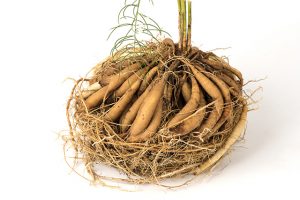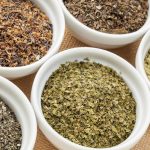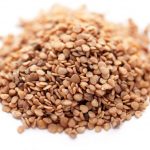
Asparagus root — sources, health benefits, nutrients, uses and constituents at NaturalPedia.com
Thursday, September 28, 2017 by Earl Garcia
http://www.naturalnewsherbs.com/2017-09-28-asparagus-root-sources-health-benefits-nutrients-uses-and-constituents.html
Asparagus root, more commonly known as tian men dong in traditional Chinese medicine, refers to the rhizomes of Asparagus cochinchinensis. The plant is a wild variety of the common garden asparagus.
An article published on the Dream Catcher Botanical website noted that the powerful herb has been cultivated in China for more than 2,000 years, mostly in the provinces of Guizhou, Sichuan, and Guangxi.
The roots are dug up during the autumn and winter. The plant’s stem bases are then removed and the fibrous roots are either boiled or steamed. The skins are removed after cooking and the roots are eventually sliced. Asparagus roots are traditionally consumed raw as a medicinal treatment.
List of known nutrients
Asparagus root ranks high among other medicinal herbs in terms of nutrient content. An entry featured on the Herbpathy website listed the many important nutrients found in the plant, which include:
- Amino acids
- Asparagine
- Calcium
- Carotene
- Choline
- Copper
- Folate
- Iron
- Kaempferol
- Magnesium
- Manganese
- Niacin
- Phosphorus
- Potassium
- Protein
- Quercetin
- Selenium
- Sodium
- Vitamin B12
- Vitamin B2
- Vitamin B5
- Vitamin B6
- Vitamin C
- Vitamin E
- Vitamin K
- Zinc
Medicinal uses for asparagus root
Asparagus root is commonly used as a treatment to various respiratory diseases. The medicinal plant acts as a powerful tonic that helps moisten dry lungs and rid the respiratory tract of toxins, tar and other harmful chemicals.
The herb is known to improve breathing and overall respiratory functions, which may prove beneficial for smokers, people with dry cough, and individuals exposed to dry environments.
The beneficial herb is also touted for its positive effects on cardiovascular health. An article published on the Chinese Herbs Healing website revealed that the asparagine in asparagus root helps induce peripheral vasodilation, lower blood pressure, and enhance cardiac contractility. Likewise, the medicinal plant helps decrease heart rate and improve urine output.
In addition, asparagus root is found to strengthen the immune system by enhancing the body’s peripheral white blood cell count and boosting the phagocytotic ability of reticuloendothelial system.
Previous in-vitro studies have shown that decoctions made from asparagus roots mitigate various types of bacteria such as alpha hemolytic streptococcus, beta hemolytic streptococcus, and Corynebacterium diphtheriae as well as Streptococcus pneumoniae, Staphylococcus aureus, and many others. The herb is also touted to possess anti-tumor properties that help stave off the development of cancer.
Ayurvedic medicine practitioners traditionally use asparagus root as a remedy to various digestive issues, an article posted on the Natural Therapy Pages website revealed. According to the entry, the herb is commonly used to address gastric ulcers, dyspepsia, and diarrhea.
Moreover, the medicinal plant is found to improve fertility, relieve menstrual cramps, and bolster breast milk production in women. Likewise, the herb can be used to maintain a healthy urinary tract, prevent skin diseases and address rheumatism.
Body systems supported by asparagus root
Asparagus root is particularly beneficial to the lungs, the heart, and the immune system. The herb also maintains healthy digestive system, urinary tract, and bone profile. The medicinal plant takes care of both the skin and the female reproductive health as well.
Ways to use asparagus root
Asparagus root is a bittersweet herb that is commonly sold in either extract or powder form. Likewise, the beneficial root is traditionally processed into tonic to alleviate a vast number of diseases. The herb is usually combined with sorghum liquor for the same purpose too. Asparagus root also works well with other medicinal plants such as Indian gooseberry, black pepper and sesame oil.
Where to learn more
- Asparagus may make urine smell funny, but it delivers extraordinary health benefits
- Asparagus can help to lift your spirits and reduce the risk of birth defects
- Does asparagus help with cancer prevention?
- Healthy and Nutritious Asparagus Recipe for Puffy Eyes
- The Many Benefits of Asparagus
Summary
Asparagus root prevents respiratory diseases, heart issues, and infections.
Asparagus root staves off digestive conditions, menstrual issues, and rheumatism.
Asparagus root is particularly beneficial to the lungs, the heart, and the immune system.
Asparagus root promotes digestive health and both the urinary and bone profiles.
Asparagus root improves both skin and female reproductive health.
Sources include:
Tagged Under: Tags: Asparagus root






